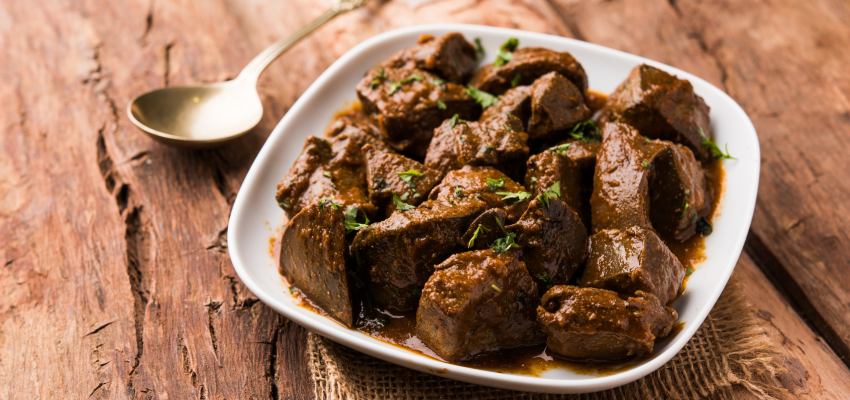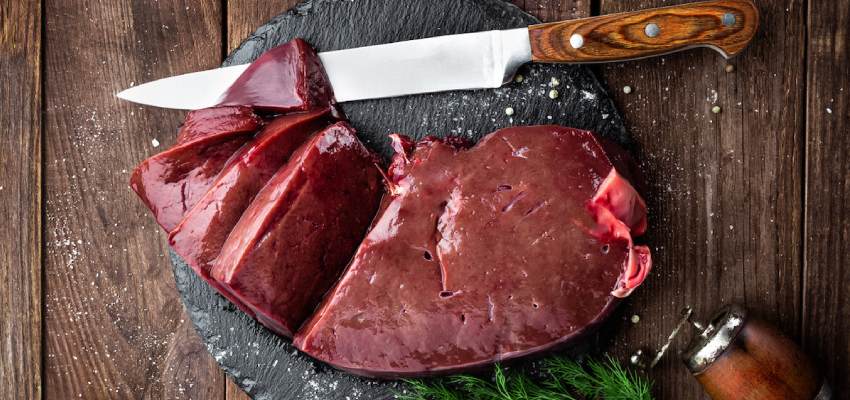When it comes to organ meats, the mutton liver, which is also known as goat liver, is a nutritious powerhouse that, in the midst of the more popular pieces of meat, is sometimes overlooked. Mutton liver is also known as goat liver.
Since it is so rich in a wide variety of important nutrients, vitamins, and minerals, mutton liver is associated with a plethora of health advantages that are well worth investigating.
In this post, we dig into the interesting realm of the benefits of mutton liver, illuminating its nutritional makeup as well as the benefits it brings to the table.
Nutritional Profile of Mutton Liver
Before we get into the specifics of the advantages, let’s first take a deeper look at the nutritional breakdown of mutton liver.

This organ meat has an extraordinarily high concentration of a number of essential elements, all of which are beneficial to one’s health and well-being as a whole.
Have a look at fiber rich food in india.
The protein
The liver of mutton is an excellent source of protein of a very high grade. Protein is necessary for the development and maintenance of tissues, the maintenance and support of immunological function, and the assistance in the creation of enzymes.
Because it contains around 25 grammes of protein in a serving size of 3.5 ounces (100 grammes), mutton liver is an ideal choice for individuals who are interested in satisfying their requirements for protein consumption.
The vitamins
Mutton liver is recognised for its extraordinary high vitamin A concentration, earning it the nickname “the powerhouse of vitamin A.” Vitamin A is essential for preserving good vision, fostering appropriate immunological function, and supporting healthy skin.
Vitamin A is found in many fruits and vegetables. Mutton liver is an excellent natural source of vitamin A since it may deliver several times the daily required dose in just one serving. Because of this, mutton liver is considered to be a robust natural source of this necessary nutrient.
Mutton liver is a rich source of a variety of B vitamins, including B12, B6, riboflavin (B2), and niacin. Mutton liver is also an excellent source of protein (B3).
These vitamins are necessary for the proper functioning of the nervous system, as well as the creation of red blood cells and the metabolism of energy. Mutton liver is a good source of B vitamins, and include it in your diet will help you achieve your daily requirements.
Also read about – Health benefits of Green Gram
The Minerals
Iron is essential for vitality: a lack of iron can result in anaemia, which in turn causes exhaustion and weakness. In comparison to the non-heme iron that may be obtained from plant-based sources, the heme iron found in mutton liver is far more readily absorbed by the body.
Mutton liver is an excellent source of heme iron. Consuming mutton liver on a regular basis can assist in warding off iron shortage and ensuring that appropriate levels of energy are maintained.
Copper’s role in the body’s fight against free radicals Copper is a vital mineral that serves as an antioxidant and helps the body produce collagen and red blood cells. Copper, found in significant quantities in mutton liver, is beneficial to overall health and the reduction of oxidative stress.
Zinc is an essential element for maintaining healthy immunological function, as well as for the healing of wounds and the production of DNA. Since it contains a respectable quantity of zinc, mutton liver is an excellent food to include in a diet that aims to maintain or improve the immune system.
Get information about – Gluten Free Atta
Health Benefits of Mutton Liver
Now that we know mutton liver has a wealth of beneficial nutrients, let’s have a look at them.

Improved Nutrition
Mutton liver is an excellent way to get vitamins and minerals that you might not be getting from your current diet. Mutton liver is an important part of a healthy diet due to its high vitamin, mineral, and protein content.
Increased Iron Content
Mutton liver is a great way to treat iron deficiency anaemia, affecting millions of people worldwide. Consumption on a regular basis can aid in warding against iron deficiency, which causes symptoms including weakness and weariness.
Eye and Skin Wellness
Mutton liver’s abundance of vitamin A makes it an excellent food for supporting good eyesight, particularly in dim light. Moreover, vitamin A is well-known for its benefits on skin health and may help you achieve a glowing complexion.
Vitamins B12 and B6 found in mutton liver are particularly important to proper nerve and brain function. Maintaining healthy levels of neurotransmitters, the brain’s messengers, can be challenging, but vitamins like these can help.
Improved Immunity
Mutton liver contains zinc and copper, two minerals contributing to a healthy immune system. By aiding in immune cell activity, antioxidant protection, and wound healing, these minerals provide your body a fighting chance against illness.
Reconstructing and Expanding Muscles
Mutton liver is an excellent source of protein, making it useful for building muscle and repairing damage. The inclusion of mutton liver in the diets of athletes and others trying to gain or maintain muscle mass is beneficial.
You can also look at gluten free bread.
Culinary Tips and Considerations
It is essential to approach the eating of mutton liver with a few concerns in mind, despite the fact that it offers a wide variety of health benefits:

It is important to acquire your nutrients from a good source, so pick mutton liver that has been grown organically and is of excellent quality. This will guarantee that you are not receiving any unwanted additions or pollutants.
Cooking techniques: Mutton liver may be cooked in a variety of ways, including by sautéing, grilling, or using it in stews and curries. However, make sure not to overcook the food, since this might lead to a chewy consistency and an intense flavour.
Like with the use of any meal, moderation is essential. Although mutton liver is rich in nutrients, eating too much of it might lead to an excess of some elements, notably vitamin A, which can have negative consequences when consumed in large numbers.
A diet that is both broad and well-balanced should include mutton liver as a regular component. Include a wide range of nutritional sources in your diet, such as fruits, vegetables, whole grains, and lean meats, in order to guarantee that you are getting a complete spectrum of the nutrients your body needs.
You may also like to read about – Black Wheat
Conclusion
In conclusion, despite the fact that it is sometimes ignored, mutton liver merits a spot in your culinary repertoire owing to its remarkable nutritional value and the variety of advantages it provides.
Mutton liver is a nutritional marvel that may help to your general well-being in a variety of ways, including increasing nutrient intake, promoting healthy vision, assisting in the building of muscular tissue, and enhancing the function of the immune system.
It is vital to approach the intake of mutton liver with knowledge and moderation, as it is with any other dietary decision, to ensure that it is complementary to a balanced diet for the purpose of achieving optimal health.
Why not investigate the culinary possibilities of mutton liver and discover the ways in which it has the ability to help you on your path to better health?
Consider reading –
- Stomach pain tablets list in india
- Best tablet for headache in india
- Best tablet for loose motion
- Teeth pain tablet name list